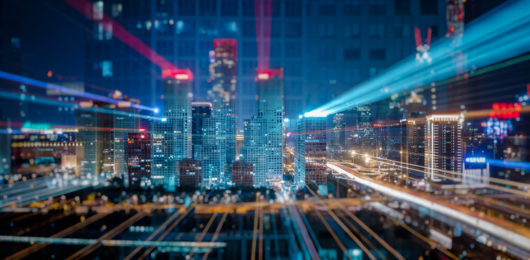OUR Client’s challenge
The perception of nuclear energy differs significantly due to the diversity of customer associations, often based on the country of origin. Some associate it with danger, some with sustainability, and some with lower costs. Our client, in the nuclear technology industry, faces the challenge of appropriately adjusting its communication strategy to attract new customers, especially in Europe. They asked DVJ Insights to conduct research to better understand the perception of nuclear energy within the three examined markets (the UK, Romania, and Poland), to choose the correct tone of voice, and to identify key elements to include in their communication strategy. These communication insights will contribute to the company’s mission to provide scaleable advanced nuclear technology for producing electricity, heat, and clean water. The main ambition is to help the world transition to clean energy with a small environmental footprint, in a socially responsible manner, and with strong corporate governance and safety culture.
The Approach
The research consisted of several parts, in which we combined different qualitative and quantitative techniques using DVJ’s Mass Qual techniques. This enabled us to explore and validate within a single study, starting with storytelling, followed by enriching and classifying stories using story markers. The next steps were to understand the mental network by asking for free associations and learning about the importance of elements when choosing a type of energy. All of this was supported with socio-demographic characteristics, the size of the household, and information about the energy supply, to be able to conclude the communication and make the adjustments needed for our client´s communication strategy.
learnings about nuclear energy
The UK´s point of view: Heat or Eat
The British market consists of a relatively low number of homeowners compared to Romania and Poland, and even fewer people use green or renewable energy sources. 63% of the population between the ages of 35 and 49 owns a property. Nuclear energy is perceived as a “clean energy source,” which is by far the strongest spontaneous association the British have with nuclear energy. However, they are afraid of potentially dangerous consequences, so safety is a critical factor for them. Additionally, “cheap” was rated as the most distinguishing feature when evaluating nuclear energy because the price is considered a key factor in the UK. It is not only seen quantitatively, but people share their experiences with energy and the prices in their daily lives.
To fully unleash the company’s potential in the UK, it is recommended to combine the focus on clean energy with the price element to reach the audience in the UK with attractive communication.

Graph 1: House ownership
Romania´s interest in green energy
There are plenty of homeowners in the real estate market in Romania compared to the other two examined countries. Around 86% of the population in the age category of 35 and 49 owns the property, and even 93% are over 50. In terms of energy, fossil sources dominate the market, and renewable energy has almost zero presence.
Romanians associate “nuclear energy” the most with its functional meaning: energy. To no surprise, the negative associations such as “danger”, “pollution,” and “radiation” are mainly linked to the Chernobyl disaster. Due to geographical proximity, this disaster is more on top of the minds of Romanians than of Britons. Consequently, due to the present fear, Romanian potential customers need to be reassured about the safety of the service.
In terms of the most important elements when considering nuclear energy, Romanians reckon price and safety as the most important ones. Surprisingly, elements oriented towards the future such as “clean”, “smart,” and “independent” scored relatively high among Romanians even though green energy is not yet present on the market.
The openness of Romanians towards renewable and green energy is high also due to the high prices of the current (fossil) sources, and they are very much willing to actively take part in the ecological transition and also to gain independence from Russia. Romanians are very forward-thinking, and our client can profit from focusing on elements related to the cleanliness of the energy, smart solutions, and a more independent energy supply.
 Graph 2: Type of energy used in households
Graph 2: Type of energy used in households
Polish government pushing for renewable sources
Over 80% of Polish residents above the age of 35 own a house. Furthermore, the presence of green or renewable energy is quite strong.
The Polish have a few positive and distinct associations with the term “nuclear energy.” They, just like Romanians, are more aware of the Chernobyl disaster, and this association is more dominant in their minds. Price and safety are two of the most important factors they consider when evaluating nuclear energy. Surprisingly, Poland ranks relatively high in elements such as “reliability” and “cleanliness,” which scored the highest importance in Poland out of the three examined countries. When it comes to energy sources, the Polish are very concerned about the state of the planet.
However, the market faces a challenge in the form of untrustworthy energy suppliers, a frequently discussed topic in Poland. The Polish understand their reliance on energy, as do energy companies, which frequently use their services to their advantage by luring customers into energy deals. By accepting the deal, the customer frequently ends up paying more than with the standard offer. There have been multiple reports of customers being misled by such companies in Poland.
Nonetheless, the government is pushing hard for the use of renewable sources, as people are willing to look for alternatives to the fossil energy solutions provided by traditional energy providers which, as mentioned, are not considered the most reliable ones. Furthermore, the government plays a significant role in subsidizing solar panels in Poland. In terms of our client´s strategy, this could indicate a potential opportunity to persuade the government to support our client.
Graph 3: The most important elements in terms of nuclear energy
CONCLUSION
When it comes to nuclear energy, Europeans are not that different. According to the findings of this study, DVJ sees the potential and efficiency of a pan-European communication strategy with local nuances to fully tap into the most profitable elements in the various European markets.
Overall, people from the UK, Romania, and Poland all have a strong need to be reassured about the safety levels of the client´s nuclear power plants. The focus in communication should also be on the price aspect, as all markets are affected by the current markup in monthly energy costs. People believe that nuclear energy is a cheaper solution than many other renewable energy sources, and thus price is associated with nuclear energy in their minds.



